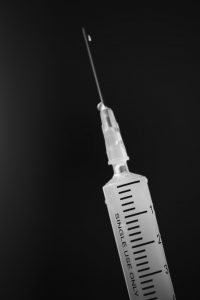Every parent has a right over what they think is best for their child. Some choose the herbal route when their kids are sick, while others choose the medicinal route. Over the past couple of years, there has been an increase in parents choosing not to give their kids vaccinations. The numbers quadrupled in the last 17 years. The reason for the decline in vaccinations is due to a study that was found to be fraud regarding autism. The study by Wakefield linked vaccines to the increase of autism in children over the years. The lack of vaccination in kids has caused some measle outbreaks all over the world, including in the U.S.

Vaccines & Autism
The study that was linked to autism was found to be untrue. The man who conducted the study, Wakefield, falsified data about the children’s conditions that he observed. Since then, at least seven large studies were conducted and found no association between the MMR vaccine and autism. But because of Wakefield’s falsified study, and the increasing numbers of autism in kids, parents are re-thinking vaccines. Parents are not reassured by the facts that vaccines are not linked to autism and other issues with children. The reason is because they have all met or know someone with an autistic child.
One in 59 kids are on the autism spectrum in the U.S. This is almost a 2% increased rate from the past 2 years. No one truly knows the reason for the increase of autism in kids. However, there are factors associated with higher risk such as mental illness during pregnancy, genetic mutations, birth before 37 weeks gestation, and having parents that are older than 30.
Measles & Vaccines
Due to the decline of kids getting the MMR shot, the number of kids getting the measles has increased. If a baby or toddler gets the measles, the outcome may be deadly for them and their weakened and undeveloped immune systems. The measles virus is a highly contagious one, it affects the respiratory system, immune system, and your skin. In the U.S. there has been a confirmed 137 measle cases among 24 states, according to the Centers for Disease Control and Prevention, CDC. The CDC estimates that if there is a 5% drop in the measles vaccination, then the number of children aged 2 to 11 who would catch the measles would triple.
Why So Many Vaccines?
Nearly 1 in 4 people aged 19-35 have not received all the recommended vaccinations. Some parents are concerned about the number of shots that a child has to get, especially since it is so much more than when they were a child. The reason for this is because back in the 1970’s and 80’s, kids were vaccinated against only 8 diseases, Since then, kids are vaccinated against 14 diseases, which is why they receive more shots. Kids these days are protected against almost twice as many diseases. 100 children died from chicken pox the year before the varicella vaccine was introduced to us. Even though a lot of people got the chicken pox and were okay, others were not as fortunate.

Herd Immunity
Some parents believe that “herd immunity” will protect their kids from getting a disease, which is why they do not give their children immunization. Herd immunity is the idea that if a large number of the community is vaccinated, then the spread of a contagious disease will be low for those who are not vaccinated. The only problem with this theory is that the community must have 80-90% of them vaccinated, and a drop in this number will lead to the community becoming susceptible to the disease. Those who are at greatest risk of getting the disease are babies and kids.
Some children who are allergic to eggs, or have immune-system deficiencies can not receive certain vaccines. This puts that child at a huge risk of contracting a disease that could compromise their life. It is important that people around the kid are vaccinated so that the child is not in danger. But this can only be achieved if we shield our kids and communities from the diseases with vaccines.
When it comes down to the debate, it depends on the parent and what they believe and feel is right. Know the facts by doing a lot of research, and ask your doctor any questions you have before choosing not to vaccinate.
